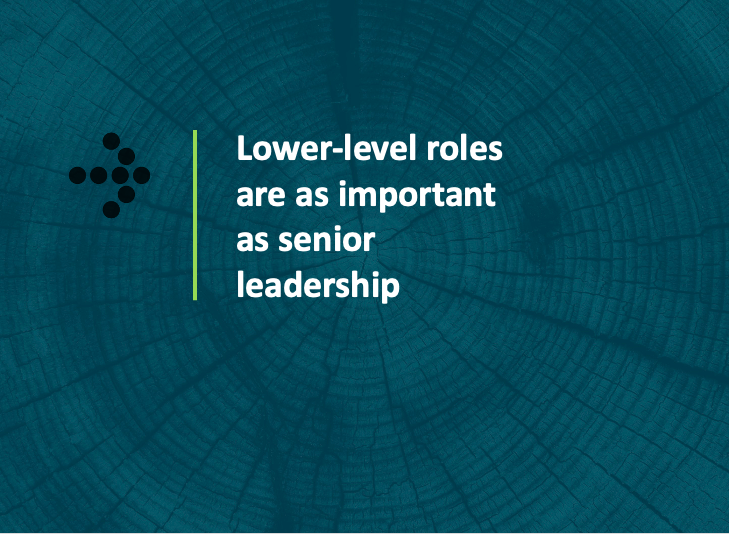Lower-level roles are as important as senior leadership
Since McKinsey coined the term “war for talent”, many articles have been written on talent management. Almost any organisation worth its salt has spent time and money investing in talent management systems.
In 2014 the Korn Ferry Institute noted that the competitive landscape is becoming increasingly global in scope. The institute found that even small and mid-size companies have no choice but to compete on a global scale. They note that the shifts in the available talent pool and workplace demographic means that younger people are entering the workforce and, due to heightened competition, people are expected to do more with less.
According to Korn Ferry, in order to ensure that strategic plans come to fruition, companies need to ensure they have the operations excellence required to execute better and faster than competitors. They also need to ensure they have the correct talent in place to drive strategy execution. Clearly, people at all levels are required to operate competently to ensure that the company achieves its goals. In fact, the Korn Ferry report states that “ a company gains competitive advantage when it delivers distinct products and services through distinct human resources.”
Another key consideration is that, in most companies, total human capital costs can account for as much as 70% of operating costs. This means people make or break an organisation. All decisions and actions depend on the capabilities and coordination of people.
This being said, it is my opinion that when companies talk about “talent management” they tend to refer to and focus on their leadership pipeline or fast-track talent pool. I believe this is a strategy that needs to be viewed with fresh eyes. A different approach to talent management will yield a significant return on investment in the long term. For almost every organisation in existence, the front line is where most of the workforce are hired. It’s also the point where customers experience the company.
Just think about it – would a call centre be effective without solid agents on the phone? Would a bank be sustainable without friendly and competent tellers? Would a mine be able to operate profitably and safely without well trained and disciplined operators at the coal face?
Another question to consider is the amount of time supervisors and managers spend performance managing incompetent or demotivated staff at the front line, and has anyone even attempted to quantify this cost?
Focusing on the growth and development of our leaders and executives is undoubtedly critical. However, if the frontline staff are not talented and competent in their own right, then even large companies with extremely effective long-term strategies will fail.
Essentially, I am suggesting that companies should invest more time and money ensuring that they bring in competent and talented individuals at ALL levels, even the lowest level roles in the company. Companies should also invest in programmes to help these individuals develop and reach their full potential, whether they’re individual contributors, supervisors or even at management level.
The Odyssey system from Evalex is the perfect tool for talent managers looking to assess individuals for entry-level or junior roles. It is game-based, which means literacy and education levels are irrelevant, and can be used for mass recruitment.
If you would like more info, contact me: [email protected].
